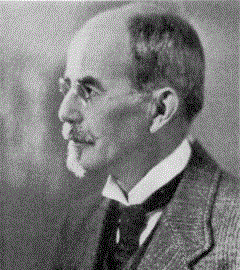Award Description | Eligibility | Criteria and Selection | Nomination Submission | Nomination Deadline | Prior Recipients | Donate to this Award
 Award Description
Award Description
The John J. Abel Award in Pharmacology, named after the founder of ASPET, was established in 1946 to stimulate fundamental research in pharmacology and experimental therapeutics by young investigators.
The award is presented annually, at the award ceremony during the ASPET Annual Meeting. The award consists of:
- A $5,000 honorarium.
- An engraved plaque.
- Complimentary registration and travel expenses for the winner and spouse to attend the ASPET Annual Meeting to receive the award.
- An invitation to deliver the John J. Abel Award Lecture in conjunction
with the ASPET Annual Meeting, other ASPET meeting, or webinar.
Eligibility
- The candidate for this award shall not have passed his/her forty-fifth birthday by October 31 (nomination deadline) of the year in which they are nominated.
- The candidate need not be a member of the Society.
- The nomination must be made by an ASPET member.
- No candidate may be nominated for more than one major ASPET award in any given year.
- The current Council president and secretary/treasurer are ineligible during their active tenure.
Criteria and Selection
- The Award shall be made for original, outstanding research in the field of pharmacology and/or experimental therapeutics. Independence of thought, originality of approach, clarity, and excellence of data presentation are important criteria. Candidates shall not be judged in comparison with the work of more mature and experienced investigators. Quality rather than the number of contributions shall be emphasized. It shall be the responsibility of the nominator to make clear the contribution of the candidate to any jointly authored reprints and manuscripts and the originality and independence of the candidate's research.
- Selection will be made by the ASPET Awards Committee, appointed by the President of ASPET.
Encouraging Diversity
ASPET is strongly committed to providing opportunities to all its members regardless of race, color, age, gender, sexual orientation, gender identity, or ability/disability.
Nominations from and for members of marginalized and underrepresented communities are greatly encouraged.
Nomination Materials
Nominations shall be submitted using the ASPET Awards Portal by logging into the box below. The nominations shall consist of:
- The candidate's curriculum vitae and bibliography in PDF.
- A brief biographical summary of the candidate and the importance of their work for use in award winner announcements (in no more than 150 words.)
- Six published articles and/or manuscripts that have been accepted for publication and are representative of the candidate's work. Each document should be provided as a separate PDF.
- A letter of nomination with a summary that describes the importance of the candidate's work (in PDF and no more than 1000 words.)
If any of the following relationships exist between the nominator and the candidate, you are encouraged to disclose it in your letter of nomination: family member, spouse, partner; current dean, departmental chair, or postdoctoral or graduate advisor; current business or financial relationship (e.g., business partner, employer, employee); research collaborator or co-author within the last three years; work at the same institution or having accepted a position at the same institution; previous graduate student or postdoctoral fellow in the last five years; or if either are currently serving on the award selection committee for this award.